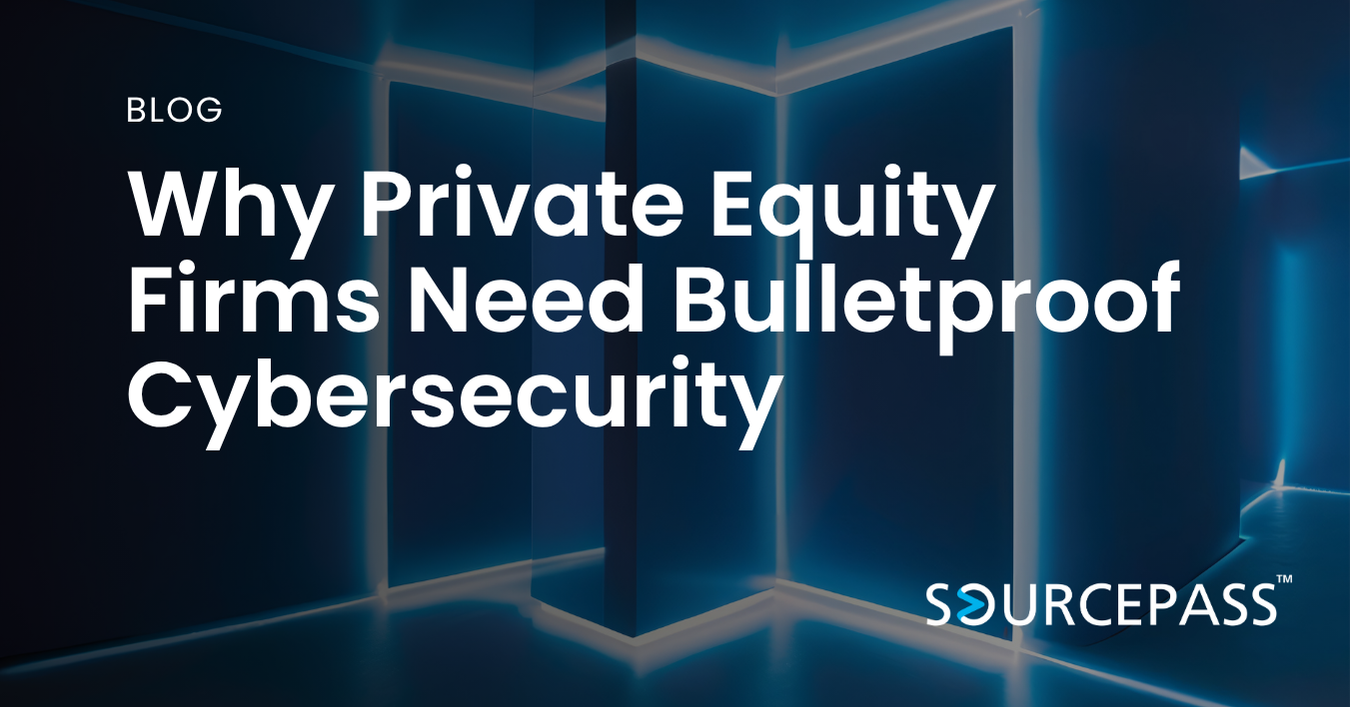Why Private Equity Firms Need Bulletproof Cybersecurity
Jun 03, 2025 Admin Industry - Financial Sector & Private Equity | Security & Compliance 2 min read



In an industry where data confidentiality and trust are paramount, private equity firms cannot afford to treat cybersecurity as an afterthought. From managing high-value transactions to housing sensitive financial and operational data, private equity firms are high-profile targets for cybercriminals. As deal volume and digital interconnectivity increase, so does the need for bulletproof cybersecurity.
In this article, we examine the importance of private equity cybersecurity, identifies the most pressing threats, and outlines strategies for building a resilient IT infrastructure to safeguard assets and reputation.
Private Equity Firms: Prime Targets for Cyberattacks
Unlike public corporations, private equity firms often operate with lean internal teams and decentralized technology environments across portfolio companies. This structure presents numerous cybersecurity vulnerabilities:
- Multiple IT environments with inconsistent controls
- Sensitive deal and investor data in transit
- Lack of centralized IT oversight
- Reliance on third-party vendors and partners
Cyber attackers view this complexity as opportunity. With billions in managed assets and time-sensitive deals at stake, private equity firms are under increasing pressure to safeguard their operations.
Top Cybersecurity Risks for Private Equity Firms
1. Deal Data Exposure
Confidential deal data—including financials, valuations, contracts, and communications—can be a goldmine for cybercriminals. A breach during due diligence or negotiations can derail transactions, damage credibility, and result in legal liabilities.
2. Ransomware Attacks
Ransomware has emerged as a major threat to hedge fund IT and private equity firms. Attackers may encrypt deal documents or financial data, demanding payment in exchange for access. These incidents can halt operations and force firms to pay hefty ransoms under pressure.
3. Third-Party Vulnerabilities
Portfolio companies, law firms, accounting firms, and SaaS providers all introduce cybersecurity risks. Without proper oversight, a breach in one partner’s system can compromise secure deal data across the ecosystem.
4. Spear Phishing and Business Email Compromise
Targeted phishing campaigns can deceive executives into authorizing fraudulent transactions or exposing login credentials. Email compromise is one of the most common entry points for attackers in financial services.
Core Components of Private Equity Cybersecurity
Building a bulletproof cybersecurity framework starts with a well-structured IT strategy tailored to the unique needs of private equity firms. Key components include:
1. Centralized IT Governance
Establish oversight for IT security across portfolio companies. Create cybersecurity standards and require baseline controls, audits, and compliance reporting.
2. End-to-End Encryption
Encrypt sensitive documents at rest and in transit. Use secure file-sharing solutions instead of email attachments for deal communication.
3. Multi-Factor Authentication (MFA)
Require MFA for all systems, especially those accessing financials, email, and cloud storage. This simple step can significantly reduce the risk of unauthorized access.
4. Incident Response Planning
Create and regularly test a comprehensive incident response plan. Speed matters—firms must be able to detect, contain, and recover from breaches without disrupting deal timelines.
5. Employee Training and Access Controls
Ensure all employees, executives, and contractors are trained in cybersecurity awareness. Implement least-privilege access policies to limit exposure.
Hedge Fund IT and Private Equity:
Shared Security Priorities
While hedge funds and private equity firms differ in structure, they share similar cybersecurity priorities. Both require:
- Secure mobile access for traveling executives
- Business continuity planning
- Regulatory compliance (SEC, FINRA, GDPR)
- Real-time monitoring and risk assessment
- Vendor and third-party risk management
Implementing a scalable, modern cybersecurity stack can help both types of firms mitigate risk while enabling operational efficiency.
The Cost of Doing Nothing
The financial and reputational damage from a data breach can far exceed the cost of proactive cybersecurity investment. Fines, lawsuits, failed deals, and investor distrust are real consequences. In today’s environment, private equity cybersecurity is not optional—it’s foundational.
Need a Cybersecurity Partner Who Understands Private Equity?
In an increasingly digital and high-stakes industry, private equity firms must take cybersecurity seriously. Protecting secure deal data, investor information, and proprietary strategies requires more than just antivirus software—it requires a strategic, layered defense designed for speed, scale, and sensitivity.
Firms that prioritize cybersecurity not only protect themselves from costly incidents, but also gain a competitive edge in attracting capital, executing deals, and building trust.
Sourcepass specializes in IT and cybersecurity solutions for financial firms, hedge funds, and private equity groups. Contact us to learn how we can help secure your operations while enabling agile growth.
Subscribe To
Sourcepass Insights
Sourcepass Insights
Stay in the loop and never miss out on the latest updates by subscribing to our newsletter today!



